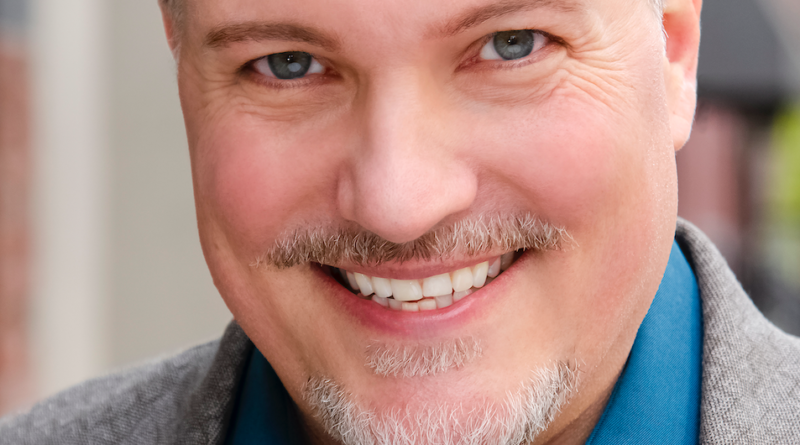INTERVIEW: Christopher Borg on the hilarity of working with Charles Busch
Photo: Christopher Borg is featured in Ibsen’s Ghost at 59E59. Photo courtesy of the artist / Provided by The Print Shop PR with permission.
Ibsen’s Ghost, Charles Busch’s latest play, had a successful run at New Jersey’s George Street Playhouse earlier this year and is now playing a limited engagement at 59E59 Theaters in Midtown Manhattan. Busch, like he does for most of his shows, serves as writer and star. In this comedy, he plays Suzannah Thoresen Ibsen, widow of the late playwright Henrik Ibsen, author of A Doll’s House, Hedda Gabler and An Enemy of the People.
In the show, which is labeled as an irresponsible biographical fantasy, Suzannah must stop the publication of a tell-all diary that includes lies about her husband. She employs the help of a motley crew of friends and family to help in her mission. Performances of the Primary Stages production run through April 14 at 59E59’s Theater A.
Christopher Borg, a classically trained actor who has performed in Busch’s plays before, is included in the cast, along with Jen Cody, Thomas Gibson, Judy Kaye, Jennifer Van Dyck and Kate Hampton. Recently Hollywood Soapbox exchanged emails with Borg about his roles in the show and his history with Busch. His previous credits include Busch’s The Confession of Lily Dare and Judith of Bethulia. Questions and answers have been slightly edited for style.
When you first read the play, what did you like about your characters?
Charles wrote two characters for me to bring to life in this piece, and what struck me immediately was how drastically different the characters are: in social status, in their relationship to the other characters in the world of the play, and most obviously, in their gender! So, I knew it would be a fun challenge to create two completely unique and memorable people.
You’ve worked with Charles Busch before. What do you love about his words and characters?
I’ve been a fan of Charles as a playwright since I was a theatre major. Charles, as a humorist, as a wordsmith, as a teller of stories, as a crafter of worlds, tickles my funny bone. The lines in his play make me laugh out loud more than any other playwright. The work is smart. And funny. And it is operating on so many levels. The characters he invents are both real and ridiculous, and they are delicious to play.
Is it interesting having the playwright be a colleague on stage with you?
It is a huge benefit to have the writer in the room. And while it can be intimidating to be sharing the stage with Charles, he is also such a giving performer and generous to his fellow actors. Charles truly hears the rhythm and music of the play, so if something isn’t working in rehearsals, he is right there to make a change or help explain or fix a moment. It’s a blessing.
How did the George Street Playhouse run go? Has the play changed a lot?
The GSP run was very successful, and it was advantageous for us to be able to play the scenes before an audience. I wouldn’t say the play changed a lot, but within scenes there were significant changes to lines in places that helped to tell the story or move things along faster. Charles isn’t afraid to make changes to his work. He listens to the audience and knows how to tweak a scene to make it work better. He also added some great jokes.
Are you an Ibsen fan?
I am absolutely an Ibsen fan. As a student of the theatre, I developed a huge respect for the father of realism. Not only did Ibsen change the course of theatre, but his plays are also great! Very relatable and playable even to audiences of today. There is a reason his plays are still being performed around the world over 100 years later.
Do you still rely on your classical training for each new role you tackle?
I 100 percent draw on my background as a classical actor frequently when working on new roles, but especially when working on a Charles Busch play. Charles often makes references to classical theatre and film in his plays, and because he knows I have that specific training, he will often write my part to have a sweeping monologue or a dramatic arc that requires a certain rigor and craftsmanship that a classically trained actor can bring — even in a comedy, maybe especially in a comedy. The parts are larger than life but simultaneously must be firmly grounded. And he uses complex language in a very specific way that requires a mastery of breath and rhythm.
By John Soltes / Publisher / John@HollywoodSoapbox.com
Ibsen’s Ghost, featuring Christopher Borg and starring Charles Busch, continues through April 14 at 59E59 Theaters in Midtown Manhattan. Click here for more information and tickets.

